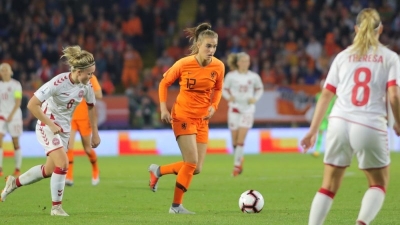Towards EU open strategic autonomy in a multipolar world

We entered the 21st century with the presumption that Europeans and Americans would define the future of the world economy, drawing strength from their open and democratic systems, values and freedoms. Living through the “end of history”, we felt that peace, international cooperation based on our values, rule of law and an open market consensus would allow us to uphold our leading world position as a standard setter, and a key economy. We felt that the upcoming EU enlargement and globalisation would evolve in our favour.
We have led those assumptions cloud our judgement. Whilst acknowledging the changing world, such as the rapid rise of China or the emergence of regional powers, we have absolved ourselves from the need to proactively define, enforce and defend our interests in the world.
Our reactive responses to emerging challenges such as the 2008 financial crisis, the Arab Spring aftermath and the rise of authoritarian policies across the globe are testament to the fact that the European Union functions as an economic giant and a political dwarf, divided across multiple national interests and is ever-hesitant whether it should combine hard and soft power to pursue its global objectives.
This policy vacuum has been filled by others who do not shy away from using trade as a weapon, exploring the weaknesses of international institutions to their benefit or treating development aid as a tool of geopolitical expansion. And as we have seen lately, our weak and uncoordinated responses have emboldened our rivals to start wars on our doorstep and attempt to divide us based on economic interdependencies.
We should treat the war in Ukraine as a final wake-up call. The EU needs a coherent strategic approach and sufficient means to defend its interests, values and policy objectives. Our goal is clear: a Union that is a strong political actor and a family of stable democracies where people enjoy freedoms, prosperity and social welfare.
This, however, demands changes in our inward and outward approach.
In recent years, the EU has been discussing its strategic priorities and reforms. Deliberations have focused around the notion of EU Open Strategic Autonomy, which could be an answer to the many challenges the EU faces. However, the ability to properly execute the strategy remains the main pre-requisite to its success.
How to change internally to better perform externally
The success of any EU strategic outward effort requires reform of the internal decision-making process. We have to abandon unanimity in favour of qualified majority voting in the Council in areas such as EU foreign policy and taxation, to be able to reach crucial decisions more efficiently. We can no longer allow purely national and selfish interests, by one country, to limit our ambitions. Furthermore, proper treaty changes should – in future – be considered in order to make the EU more efficient.
Ongoing conflicts near EU borders highlight the need to reinvest in European military capabilities, including equipment production, defence spending, and compatibility between member states. These efforts should complement and improve NATO structures and cooperation with allies.
Our strategic position also relies heavily on the state of our industrial base and the ability to create technological advancements. Smart and targeted reindustrialisation, as well as increased investment in research and development, should be the main objectives of our strategically driven industrial policy.
The future of the global race lies in innovation – we cannot afford to lag further behind in this area. Rebuilding our production capacity in high-end, digital technologies and attracting talents from around the globe has to play a vital role in this.
Drawing up ambitious plans means nothing without securing proper financing. A stable source of income for projects of strategic importance should be based on new budgetary resources of the EU, not bound by the whims of national interests. Following up on the plastic tax, we should also consider the introduction of a financial transaction tax or, potentially, a single market levy. These new funding sources should work towards increasing the strategic position of the EU and respond to the actions of other competitors. The recent discussions on the establishment of the sovereignty fund is just one justification of this approach.
Pursuing and defending our values and interests
Russia’s war of aggression accelerates a new phase of globalisation, in a new multipolar world. The EU should be doing everything it can to defend multilateralism, rule-based international order, and open and fair trade.
What we currently observe is a rapid reshaping of globalisation conducted by various actors. Increased regionalisation in trade, subsidisation of production, export controls and growing protectionism, as well as aggressive competition over access to resources creates a world composed of competing clusters built around the strongest powers. The EU will have to act rapidly and decisively to defend its interests and autonomy against world competitors and rivals.
Therefore, we need to build a common strategic culture, and clearly define our interests and goals. It is obvious that we need to take greater responsibility for neighbouring EU countries, offering security and economic development by means of an accession policy.
We also have to conduct an assertive trade policy, which fits our geopolitical agenda and long-term economic goals. At the same time, it is in our best interest to actively build value-based partnerships across the globe. Only by engaging with the developing world, addressing poverty, and offering credible development strategies for our partners can we expect to remain a significant world player. Without funding new development programmes, such as the Global Gateway, our influence over partners will be limited. And only with a network of international partners can we expect to secure autonomy vis-a-vis our main rivals and competitors.
Finally, this strategy should serve to create a world where values such as democracy, rule of law, respect for human rights and the environment are put at the centre of our efforts.
The EU has always evolved through crises. Let us hope that this last year has taught us enough to understand the significance and need of pursuing a common strategic path.



